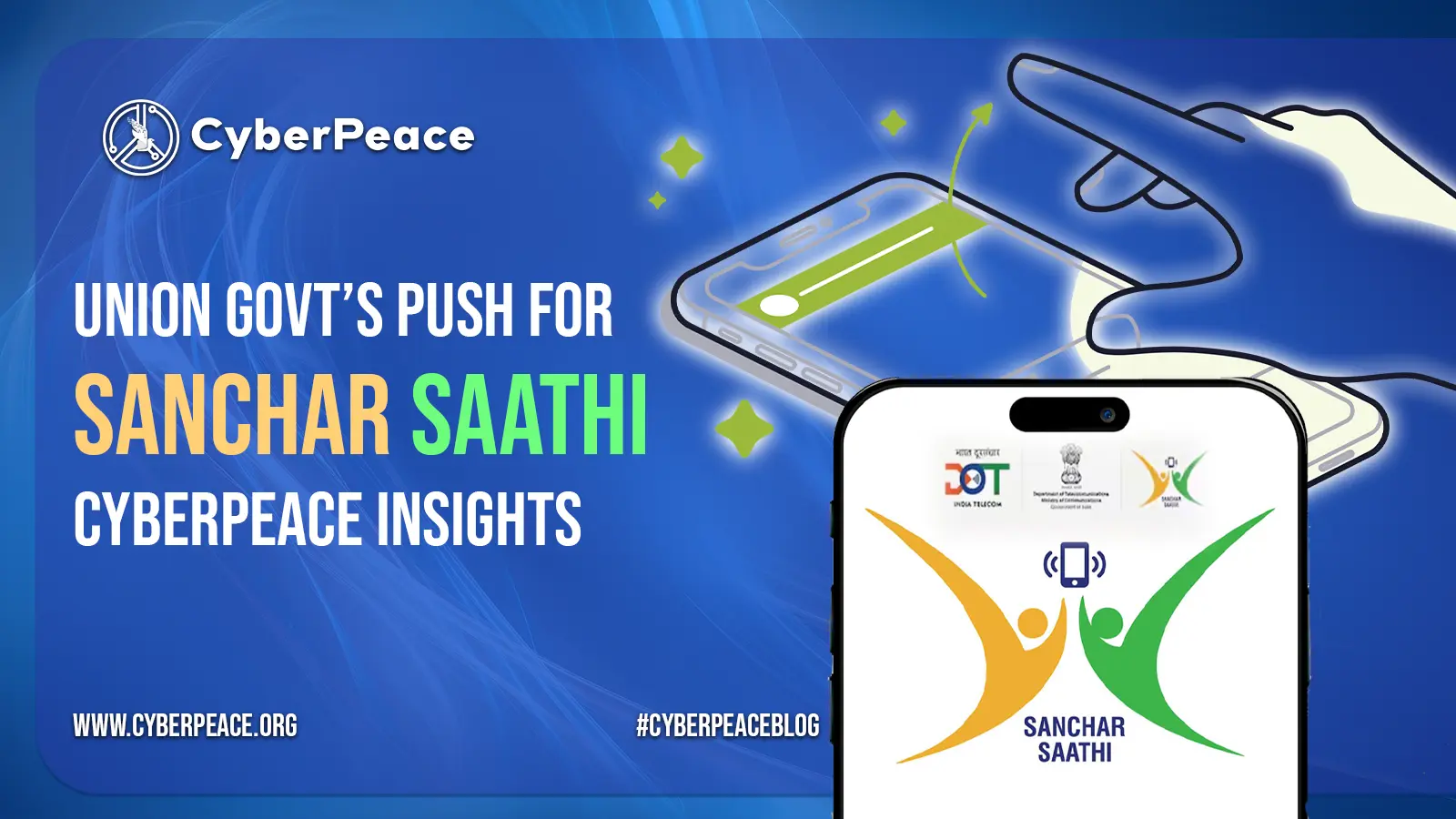Introduction
The Department of Telecommunications (DoT) changed course just 48 hours after the directive dated December 1, 2025, sparked controversy. On December 3, 2025, the department publicly reversed its directive to smartphone manufacturers to pre-install the Sanchar Saathi app starting in March of the following year. The withdrawal marked the ending of a tumultuous, quick-paced event that highlighted how dynamic digital policy can be in a democracy.
The DoT explained its move in calculated terms. The government said that the first mandate was no longer necessary due to an abrupt increase in voluntary app downloads brought on by the public furore. The agency stated , “The mandate to install the app was meant to accelerate the process because the number of users has been growing rapidly.”
The app in question is not new. When it was first introduced in 2023, it was intended to be a public safety where people could report suspicious calls, identify numbers registered in their name, block stolen devices using their IMEI, confirm the authenticity of their handset, and report fraudulent international calls that were disguised as Indian numbers. The platform has quietly expanded over the past two years with features like utilities to check mobile connections, as well as Chakshu for reporting fraud. When used freely, it has helped numerous people in navigating the increasingly complex web of online scams.
Balancing Protection and Personal Freedom
In India, there isn’t much precedent for requiring all phones to have a certain government backed app installed. While operators supported TRAI’s DND app in 2018 and emergency numbers were integrated during the pandemic, they did not go into the territory of compulsory pre-installation.
Legal experts have time and again pointed out that although the government can control telecommunications for security reasons, any mandatory action pertaining to personal devices may be subject to constitutional review under the right to privacy, as stated in the Puttaswamy ruling. Not because the app is flawed in and of itself, but rather because every transition from voluntary adoption to mandatory compliance necessitates a higher standard of necessity, proportionality, and protections.
The Pulse of the Policy
The DoT’s stated rationale was clear: fake, duplicated or spoofed IMEIs represent a major cyber-security threat. India currently faces some of the world’s highest levels of SIM misuse, digital impersonation, online extortion, and device cloning crimes. Even a small fraction of compromised devices can do great harm in a nation with over a billion active mobile users.
The DoT’s AI and Digital Intelligence Unit, a small seven-person team in charge of SIM security, fighting illicit telecom setups, and collaborating with financial regulators on quickly changing fraud patterns, issued the Sanchar Saathi directive as part of a larger set of security-focused measures. One order required platforms such as WhatsApp to make sure that web sessions were terminated after six hours and that accounts only functioned when the registered SIM card was present in the device.
When taken as a whole, these orders indicate a clear strategic goal, the government is working to close systemic gaps that organised crime, particularly identity theft and device-level fraud, exploits. However, they also highlight the complex relationship between public opinion and security requirements. The government’s quick reversal in the Sanchar Saathi case demonstrated a crucial realization: digital safety mechanisms can only be effective when people feel educated, valued, and in charge.
CyberPeace Perspective & The Middle Path
CyberPeace stated that whenever a digital tool comes into contact with identity, data, or mobile access, public concern is inevitable. However, it is also emphasised that Sanchar Saathi is not a surveillance tool, instead can empower citizens.
Even with the rolled back mandate, it is reaffirmed that cornerstones of digital trust are accountability, openness, audits, and unambiguous permissions. India can maintain both safety and rights through responsible implementation, ethical design, and open communication.
References
- https://www.thehindu.com/sci-tech/technology/what-is-the-sanchar-saathi-app-why-is-the-government-mandating-its-pre-installation/article70350322.ece
- https://theprint.in/opinion/sharp-edge/sanchar-saathi-app-modi-govt/2797917/
- https://www.pib.gov.in/PressReleasePage.aspx?PRID=2198110®=3&lang=2
- https://sancharsaathi.gov.in/SancharSaathiDocuments/ImportantDocuments/DoT%20issues%20directions%20for%20pre-installation%20of%20Sanchar%20Saathi%20App%20in%20mobile%20handsets%20to%20verify%20the%20genuineness%20of%20mobile%20handsets.pdf
- https://cyberpeace.org/resources/blogs/sanchar-saathi-portal-a-solution-for-mobile-phone-theft-and-data-protection
- https://cyberpeace.org/resources/blogs/chakshu-and-dip-shielding-citizens-from-online-frauds
- https://cyberpeace.org/resources/blogs/financial-risk-indicator-launched-by-dot-to-strengthen-cybersecurity






















